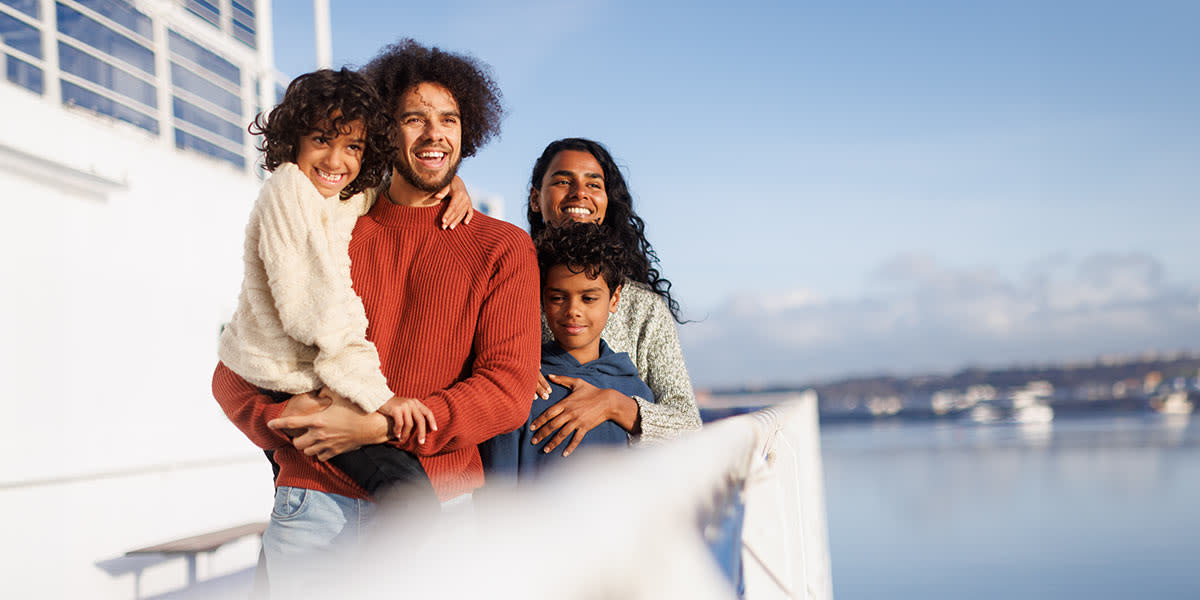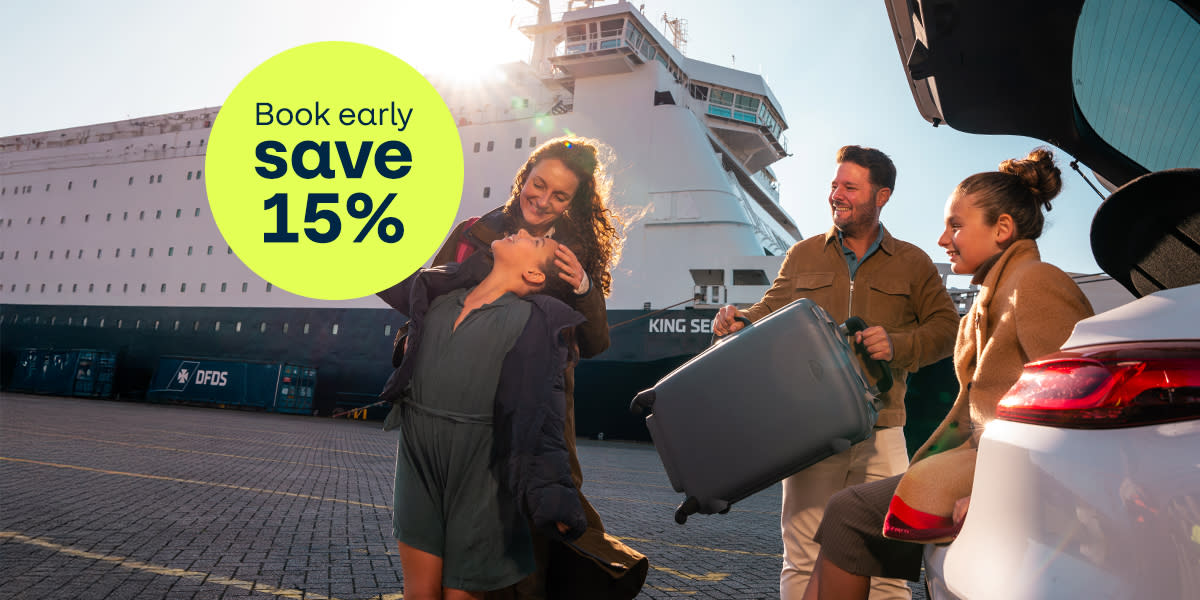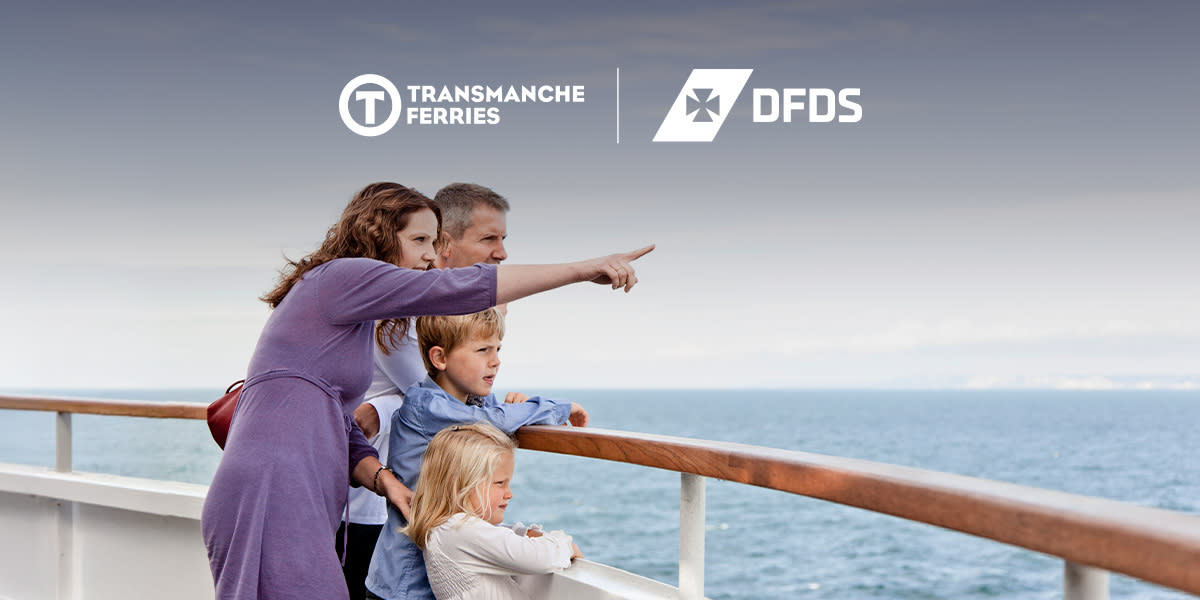![DFDS Liverpool ship at sea [New] Liverpool ship](https://images.ctfassets.net/mivicpf5zews/135mQwviKVfhq4HoeinzmG/c0b978ea54a95760a1ed34f50918d889/1200x600_liverpool_new.jpg?q=75)
DFDS is recording a rise in travellers with pets
The thought of leaving a desperate animal in a shelter leads to an increase in the number of vacationers deciding to take four-legged family members with them. Travelers find it less stressful than expected and getting a passport for a dog is extremely easy. Leaving the house with the sound of a crying animal coming from the doghouse - or, worse, the expression "don't leave me" - when you leave is not the best way to start your vacation.
The ferry company, DFDS reports an increased number of dog travelers - an average of 364 more animals transported per month, from 2017. until 2018. In 2017, DFDS transported an average of 3,539 animals per month, and this number increased to 3,903 in 2018.
The numbers have more than doubled on their Amsterdam-Newcastle route since 2017. (From 701 to 1631 per year). On the Copenhagen-Oslo routes, the number has increased from 106 to 378 in 2017-2018 and is now 270 for 2019. Vets, travel companies and other travelers assure pet owners that the program is working effectively. Instead, you need to plan in advance, because according to the current guidelines of the pet program, the last vaccination against rabies must be done no later than 21 days from the date of travel. Dog shelters require vaccinations carried out 14 days earlier, so an experienced traveler will get used to meeting these health control criteria.
Jeremy Stattersfield from Burnham House Veterinary Surgery in Dover trains the DFDS ferry crew in first aid for pets and deals with all emergencies for the company. He said: "DFDS has done an amazing job and the ferries and crew are very animal friendly. Dogs connect with people, not places, so parting is always stressful for them. If we know that our dog is well looked after, it is a great relief for us.
"We helped train cabin crew in providing first aid to the animals so that they know what to do if the dog does not feel well on board. It is extremely important that the staff have knowledge in a dangerous situation to help owners who may not know what to do, and this knowledge can help save the animal's life. " The Burnham House veterinary office has seen a steady increase in pet passport applications, though uncertainty about what will happen after Brexit is taking its toll this year. Mr. Stattersfield advises pet owners to plan well in advance so that their travel plans run as smoothly as possible. It is important to contact your vet at least 4 months in advance as they will have information in accordance with current DEFRA Brexit guidelines.
To travel around Europe, an animal must:
- have a microchip (which must be worn before or at the same time as rabies vaccination)
- have a pet passport
- be vaccinated against rabies
Jeremy Stattersfield advises owners to choose cruises early or late in the evening in hot weather, and remember to leave the car with the windows and roofs down to ensure good ventilation. He added: "If the animal is in a baby carrier, avoid blocking the ventilation slats with luggage and keep the animal in a well-ventilated part of the car. Most importantly, remember - if you are going to a bar, leave your pet his favorite drink!
The general price for passport and rabies vaccination is around £ 100- £ 150 - all puppies are legally microchipped in the UK. Comparing this to around £ 20 a day plus VAT for a large dog in shelters in the UK, and hotel accommodation for dogs in the day can be up to £ 40 a day.
Pet friendly cabs on the Newcastle route cost £ 30 per pet each way and the same costs leaving your pet in the car for travel (possible but not recommended). On the Dover-Calais route, pets must be kept in cars, it costs £ 15 per animal each way. On the Newhaven-Dieppe route, animals must remain in the vehicle, and it costs £ 18 per animal each way.
Ray Ferris from Newcastle upon Tyne often traveled by ferry with his Bishon, Bibi, to Germany and said: "Traveling with my pet by the DFDS ferry is excellent. We never had any problems with traveling, she was very comfortable in our car, and returning with her in Dunkirk was no problem. " It seems that the emotional cost of separating the dog from the owner causes, is much higher than paying the passport for your pet and it is the latter option that more and more travelers are choosing.
-END-
DFDS Press Office 01304 874052 Dover.pr@dfds.com
DFDS is the largest integrated shipping and logistics company in Northern Europe with a network of about 30 routes and 50 cargo ships and a lane




